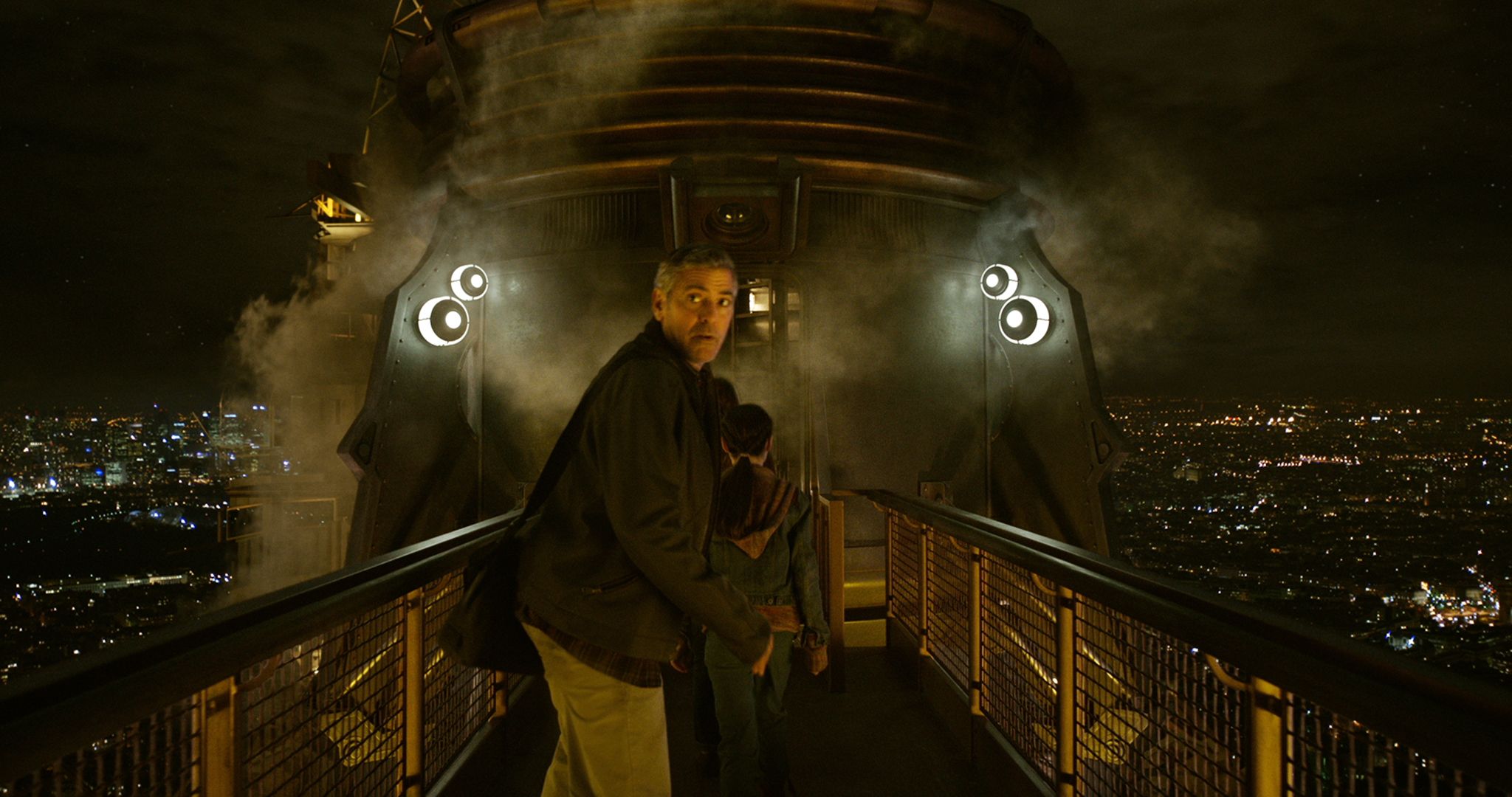
The screenwriter Damon Lindelof is known for his plot twists, sudden swerves in logic and stomach-churning cliffhangers. As it turns out, the mind behind Lost, World War Z, Star Trek into the Darkness and Prometheus may have found early inspiration in his favorite roller coaster.
Lindelof was 11 when he first rode Space Mountain in Disneyland's futuristic Tomorrowland. His parents had just divorced and, he says, "the tactic of all New Jersey divorced parents is to have one of the parents take the kid to Disneyland to avoid the emotional fallout."
He brings me up to speed between breaks for Black's barbequed brisket in Austin, Texas, where he's filming his HBO series The Leftovers. "It was 1984," he says. "I remember because the U.S. Olympic gymnast team was there. While I waited in line for 90 minutes, the gymnasts walked right past me in their U.S.A. tracksuits. It was a very memorable first roller-coaster ride."
It's semi-ironic that this scene unfolded in 1984. The eponymous George Orwell novel depicts a dystopian future that Lindelof desperately wants to sidestep in his new relentlessly uplifting Disney film Tomorrowland, which opens in theaters nationwide on May 22.
There's a montage near the start in which teen protagonist Casey (Britt Robertson) goes to high school. In her first class, the teacher discusses national security and repeats the phrase "mutually assured destruction." Next period, another teacher screens videos of melting ice caps and gases about environmental entropy. In English class, Casey studies 1984 and is told that Big Brother is watching now.
Casey is the latest cinematic member of what British economist Noreena Hertz has termed "Generation Katniss" after the revolutionary heroine of The Hunger Games. She argues that the teenage Katnisses have "been shaped by this world of existential danger and threat which is now piped into their smartphones: the beheadings on Facebook, the tragedy on Twitter feeds."
One day after school, Casey accidentally destroys her cell while visiting a fifth -imensional utopia called Tomorrowland. Created by late–19th century inventors like Nikola Tesla and Thomas Edison, this alt-world lacks iPhones. Attention moviegoers: Park your Siri and teary-eyed cat emojis at the theater door.
Smartphones aren't all that's excluded from the Tomorrowland of Tomorrowland. Disney didn't want the film to play like an ad for Space Mountain or any of the "lands" in its theme parks. Instead, it plays like an ad for hopey dreamers and dreamy hopers.
An early scene is set at New York's 1964 World's Fair, where a Jetsons-like idealism is pushed by scientists, engineers and Disney, which installed the first "It's a Small World" attraction not far from the 12-story high, stainless-steel model of the Earth called the Unisphere. "There was a time where we all looked forward to the future," Lindelof says. "Where we thought everything was going to be sunny and we'd all be riding around on jetpacks. But that time has passed. We've replaced the hopeful view of the future with dystopia. It's all robots taking over the world or zombies or The Hunger Games or Planet of the Apes. So what happened to that other idea? Why did we give up on it?"
Of course, in Lindelof's romantic nostalgia for futures past, he ignores the bomb-shelter paranoia of The Atomic Age, the scare tactics of the Cold War, and the chaotic menace of sci-fi films like Fritz Lang's Metropolis (1927) and novels like Aldous Huxley's Brave New World (1932).

Disney's amusement park makeover of the future is not unlike its makeover of Times Square—grit and grime have been supplanted by shiny, unthreatening sterility. "The word Tomorrowland has always been evocative to me," says Lindelof. "It's more hopeful than 'the future.' Like, who's not looking forward to tomorrow?"
But non-white and non-hetero characters don't seem to have anything to look forward to in Tomorrowland. Keegan-Michael Key is pretty much the only minority player, and he's not human. His dreadlocked shop owner is quickly exposed as an android and blown to smithereens. It's a shame: He's the comic relief. A lively, silly Captain Jack Sparrow is what this film sorely lacks.
The four characters in Tomorrowland are more like two characters with dual sides: Old Man I and II, and Young Girl I and II. Old Man I is a gruff, earnest Tomorrowland engineer played by George Clooney. The antsy sadness of Old Man II (Hugh Laurie) makes him seem like he's acting at gunpoint. Young Girl I is Robertson's Casey, a gurgling, self-described "optimist." She's the one who solves tough engineering problems by furrowing her brow. Young Girl II is preteen robot Athena (Raffey Cassidy), a Big Eyes painting come to life. She's around purely to tell Casey how special she is; that Tomorrow is kinda, sorta imperiled; that yesterday, love was such an easy game to play.
In an unnerving twist, we learn that Clooney's character was once in love with the child-like Athena and that he never quite got over her rejection of him. Since she still looks too teeny to meet Space Mountain's height requirement, you wonder if this is Disney's Tomorrowland or Michael Jackson's Neverland.
Wherever this feature lands, the future is not ours to see. None of the all-knowing principals of Lindelof's Tomorrowland reveal the ending of Lindelof's Leftovers.
Uncommon Knowledge
Newsweek is committed to challenging conventional wisdom and finding connections in the search for common ground.
Newsweek is committed to challenging conventional wisdom and finding connections in the search for common ground.
About the writer
Gogo Lidz was 19 when her first feature story was published in the Los Angeles Times in 2004. She wrote freelance for ... Read more
To read how Newsweek uses AI as a newsroom tool, Click here.





